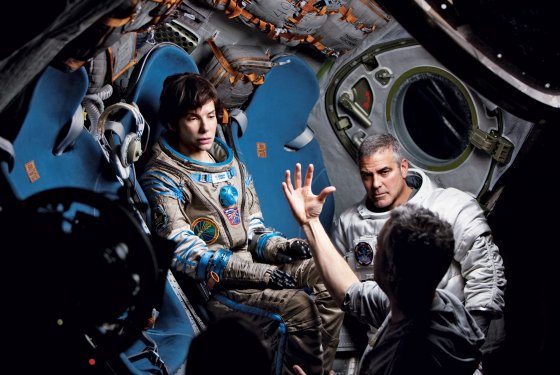
He’d spent more than a year in post production inside a dark room just up the street, staring at computer screens as animators arrived in waves, day after day…
Cuarón’s dedication to it is unusually intense. It’s an approach to filmmaking that recognizes the medium’s most basic quality, its ability to create a scene, primarily visually, and nourish it completely, even at the expense of plot development and characterization. And while Gravity is, by far, Cuarón’s most extreme experimentation in this regard, he could not have made it without making Children of Men, the paranoid thriller about an infertile human race in 2027. The movie is full of atmospherics and includes an excruciating four-minute single-take scene where a car ride into the woods turns catastrophic; to shoot it, the car had to be retrofitted so that its seats could rise and move the five characters out of the way of the camera, situated in the middle, which was effectively the sixth passenger, reacting as any person might. But the movie’s character development was thin, and when Clive Owen read the script, he was inclined to pass. “I couldn’t find my way into the part,” he remembers. It took sitting down with Cuarón and hearing him talk about his vision for the film to change his mind.
The idea was to steep a potentially farcical film in extreme reality, through the use of photojournalism as a design reference and through the single-take shot. “Alfonso was crazy about using ambient light so everything looked as natural as possible,” Owen says, and they would sit around waiting until exactly the right conditions, fielding increasingly frantic calls from the studio. The climactic scene was a seven-minute continuous shot that moved inside and outside, across space, through an explosion. Each time they filmed it, the set took half a day to reset. On the third take, “we just knew we fucking nailed it,” Owen remembers. “And Alfonso came by and said, ‘Oh, no, oh, no—there’s blood on the lens of the camera!’ And Chivo says, ‘¡Cabrón! That’s not a bad thing! It’s fantastic!’ ” The first time he saw the scene, Owen says, he knew immediately that it “would be one of the films that I’d be most proud of at the end of a career.”
The rest of this story can be read at Vulture.com.

